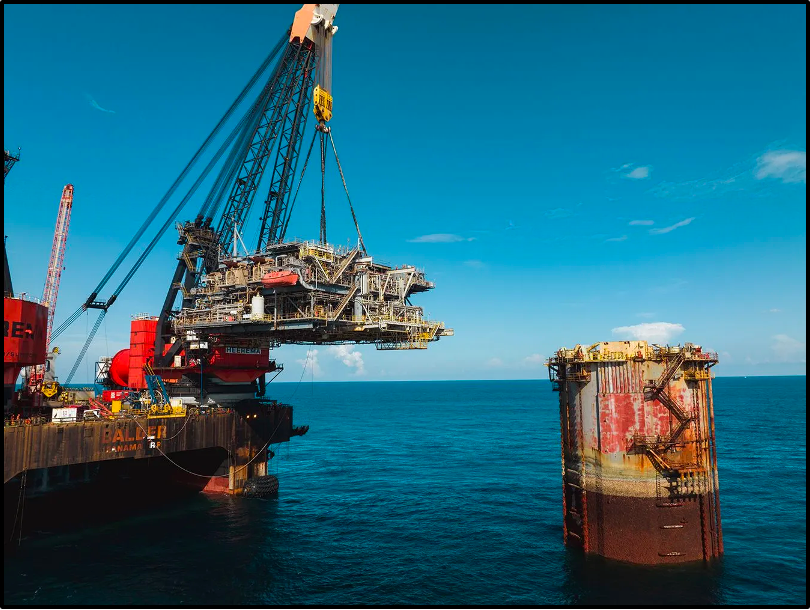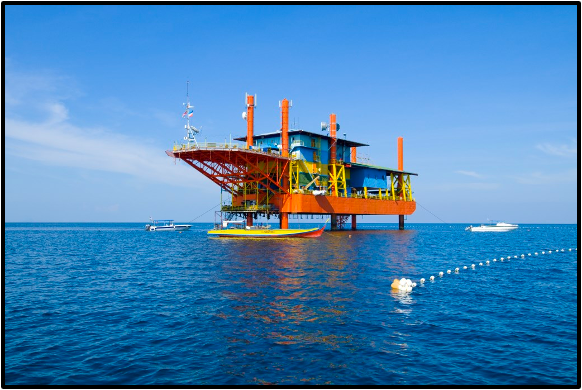Growing up my dad had a saying that he loved to use on us kids whenever we were upset over an outcome…”choices, decisions, consequences”. This one simple phrase was used to imply that despite our objections to the outcome, it didn’t matter, we were forced to deal with the aftermath of our choices. Perhaps it’s the obnoxious amount of questionable decisions I made as a teenager that has this phrase ingrained in my head, but I can’t help but repeat this to myself anytime I think of our society’s obsession with fossil fuels. (By the way, I realize the irony of writing about fossil fuel usage as I am utilizing fossil fuels to power my computer to write this blog about our enormous fossil fuel usage.)
Choices, decisions, consequences…our choice to compulsively use fossil fuels has led to the decision to lease out areas of our oceans for oil and gas platforms that will eventually dry up. The unintentional consequence to all of us, these unsightly, disturbing, and incredibly expensive structures. Not to be outdone, they also have the potential to leak toxins and oil without anyone knowing because they aren’t monitored. Currently, there are about 2,900 active drilling sites. Then there’s nearly 540 not active sites, just sitting there, waiting to be decommissioned.
Oil and gas lease agreements say the company who has leased the platform is financially responsible for decommission. If gas prices are any indicator, we all know oil and companies have the funds to do it. So what is the hold up? Turns out, you can’t simply plug the hole on a decommissioned oil platform and move on. Like every issue in the United States right now, people are divided on how to handle this process – and just like a federal shut down after congress can’t agree on a spending bill, here we are sitting and waiting for things to get done. So what exactly are the boiling points keeping progress at a snail’s pace? Here are the options we are working with:
- RIGS TO REEFS: Instead of, save the whales, save the oil rigs
That’s right, keep some of the oil platforms right where they are and remove the excess infrastructure outside of the water. Leaving what is basically trash in the ocean seems counterproductive. But, people who support this say it’s essentially creating an artificial reef (what a mindfuck, right?… fossil fuels can destroy coral reefs but also create them??)
Pros:
- Some oil rigs create thriving ecosystems that call the infrastructure home. Removing the infrastructure would harm these animals and plants. Allowing them to stay in place creates a home for more biodiversity.
- The cost is significantly less than full decommission.
Cons:
- People against this program feel like it gives gas and oil companies a free pass – not having to deal with the financial consequence of their decision to sign the lease. The financial burden is handed to the state. So, your tax dollars.
- Not all platforms can qualify.

- REMOVAL: So long, sucka
Complete removal of the platform and all its infrastructure. All materials are taken onshore and ideally recycled. But either way, they are disposed of on land. Of course, this is not the easiest task, check out this time lapse to get the full picture of what it takes: Watch A 14,000 Ton Oil Rig Removed From The Sea
Pros:
- Force oil and gas to deal with the financial consequence of their business and massive profits.
- Some say we should let nature be nature and return to its normal state.
Cons:
- Extremely costly (but who are we kidding, so are gas prices).
- The removal can be as loud and intrusive as building the platform. Plus, it takes a lot of fossil fuels to move thousands and thousands of pounds of material back to shore.

- ALTERNATIVE USE: Reduce, Reuse, Recycle (sort of)
A company can petition to reuse some of the materials for another platform or for an entirely new use all together. Some innovative ideas include, carbon capture sites, storage sites, resorts (yeah, like a hotel), and even art.
- Helps to offset costs.
- Reduces landfill waste if material is disposed on land and not recycled.
Cons:
- Again, this lets oil and gas off the hook for their responsibilities.
Let’s face it, we as humans have really screwed up this planet. Figuring out what to do with these decommissioned oil platforms could help us somewhat redeem ourselves as a species. I’m not saying one possible solution is better than the other. Or that it’s a one size fits all solution. What I am saying is that here we are, grown adults in a civilized society (maybe it’s more like a semi civilized society) playing the ultimate game of, Hot Potato, and avoiding the consequence of our addiction to fossil fuels. Let’s act like adults, stop pointing fingers, come to a consensus, and finally figure this out. If you too have had enough, feel free to drop a line on the decommissioning process which includes a public comment period. Check out this official guide on how the process works.
Written By: Erin VandeVen, MBC class of 2024


